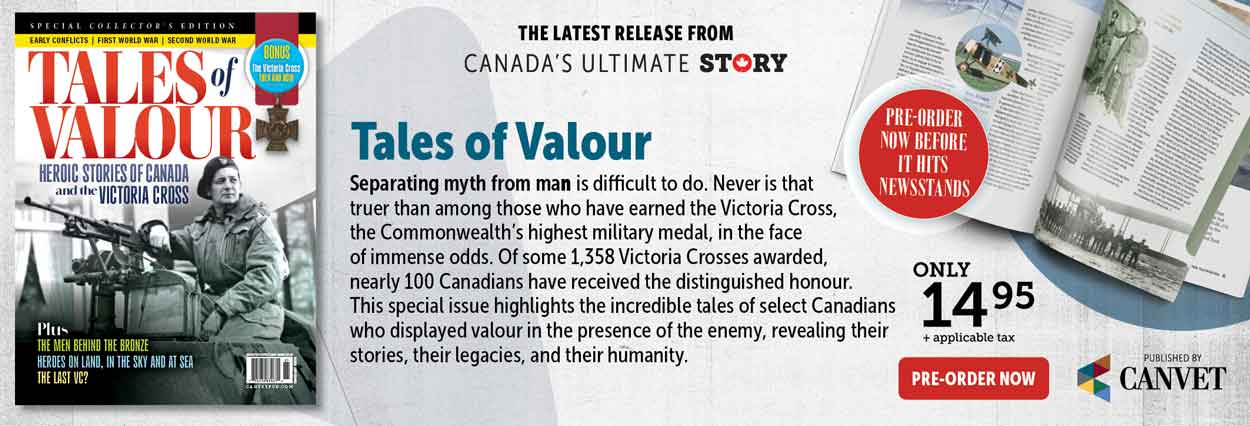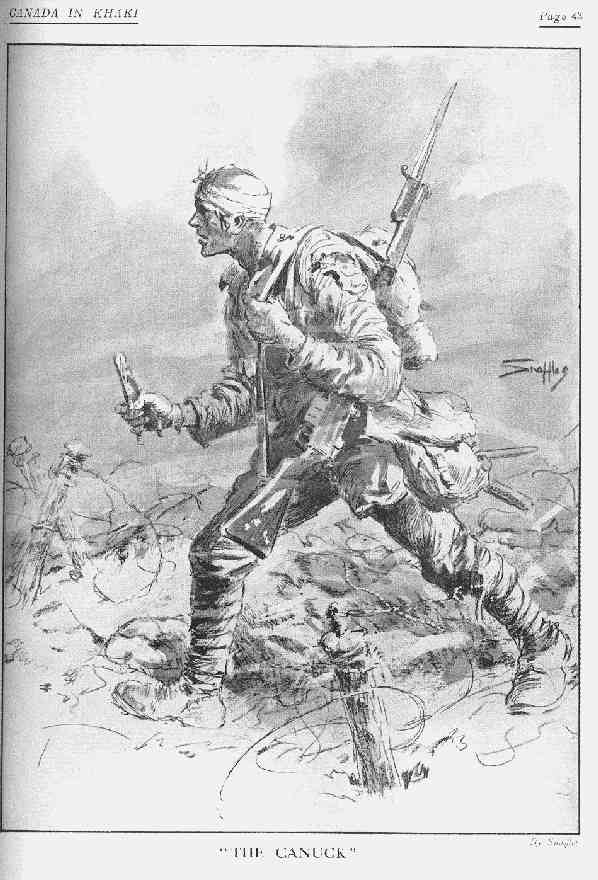With the U.S. president threatening to economically bludgeon Canada into submission as the 51st state, just under half of surveyed Canadians (49 per cent) say they would go to war for their country.
Those most willing to lay it on the line, 55 per cent of whom said they were willing to fight, were over 54 years old. Among the 1,619 Canadians surveyed, those of fighting age—18- to 34-year-olds—were far less inclined to enlist.
In response to the question, “Could you ever foresee an armed conflict that would compel you to volunteer for military service in a combat role?,” just 43 per cent of the youngest group told the Angus Reid Institute they would.
The bulk of respondents who said they would enlist would do so only if they agreed with the reasons for fighting (30 per cent, while 19 per cent simply said they would volunteer if called on).
The survey comes at a critical moment, when an understaffed Canadian military is struggling to find recruits and the government has agreed to meet or exceed NATO spending minimums. An unpredictable President Donald Trump says he will hike already-withering tariffs in August.
Just under half of surveyed Canadians (49 per cent) say they would go to war for their country.
The two countries’ trade and industry have long been tightly intertwined. Canada was the third-largest source of imports to the U.S. in 2024, behind China and Mexico. And it was the No. 1 destination for American exports.
The Trump tariffs include 50 per cent on steel and aluminum, 25 per cent on cars, 10 per cent on potash and energy, and 25 per cent tariffs on imports not compliant with the Canada-U.S.-Mexico trade agreement, known in Canada as CUSMA. Trump is now threatening to slap a sweeping 35 per cent tariff on imports from Canada.
The president’s rationale for these penalties? He cited fentanyl crossing the border from Canada, even though U.S.-bound seizures totaled 59 pounds between 2022 and 2024, compared to 61,900 pounds at the Mexico-U.S. border.
Trump then blamed a supposedly massive trade deficit with Canada and high Canadian tariffs on U.S. goods. “We subsidize Canada to the tune of $200 billion a year,” he has said.
In fact, Canada exported $412 billion worth of goods to the U.S.—a country more than eight times its population—in 2024, including discounted oil, while U.S. exports to Canada totalled $350 billion.
More telling are the per capita expenditures on imported goods. Americans, all 340 million of them, spent an average of $1,208 apiece on Canadian goods last year, while 40.1 million Canadians spent an average of $8,500 each on American imports.

Donald Trump posted this graphic to his Truth Social platform on Jan. 7, 2025, prior to his inauguration. [Donald Trump/Truth Social]
So why turn on Canada?
“Frankly, Canada should be the 51st state, they really should,” Trump told Fox News on June 27, 2025, resurrecting a not-so-veiled threat he has been intermittently uttering at least since his inauguration this past January.
“Because Canada relies entirely on the United States; we don’t rely on Canada.”
In March, the president exercised the notion as a bargaining chip, or a threat, saying “the only thing that makes sense is for Canada to become our cherished 51st state. This would make all tariffs, and everything else, totally disappear.”
He’s called the Canada-U.S. border “an artificial line of separation” and questioned the validity of the 1908 treaty that finalized it. Senior U.S. administration officials have claimed that “Canada is not a real country.”
Trump adviser Peter Navarro has even uttered the outlandish notion that Canada has been “taken over by Mexican cartels.” This, after Trump designated drug cartels “terrorist organizations,” raising the spectre of military action abroad.
“He’s trying to break us so he can own us,” Prime Minister Mark Carney has said multiple times. “Canada is not for sale. Never. Never. Never.”
“Canada relies entirely on the United States; we don’t rely on Canada.” —U.S. President Donald Trump
So, while Trump threatens to annex Canada, Iceland and the Panama Canal—the latter two, he has said, by force, if necessary—the prime minister is shifting Canada’s focus to Europe. In June, he signed a security and defence partnership agreement with the European Union.
The deal aims to grow co-ordination in security and defence priorities as well as procurement opportunities as Canada escalates military spending. That may include a pivot from the purchase of U.S. F-35 fighter aircraft to the Swedish-built Saab JAS 39 Gripen.
And more is in the offing.
“Canada and the EU will soon launch comprehensive negotiations across multiple areas to strengthen co-operation and connection—including trade and economic security, the digital transition, and the fight against climate change and environmental degradation,” said a government release at the time. “This will create more economic opportunities and long-term prosperity for workers, businesses, and citizens in both Canada and the EU.”
If his economic strategy fails, just how far will Trump go to make good on his vision of a 51st state? Would he take military action against his northern neighbour?
“While the Donald Trump administration’s rhetoric and behaviour toward Canada is disturbing, the prospect of American military aggression remains remote,” Noel Anderson, an assistant political science professor at the University of Toronto, wrote for The Conversation in March.
“Military, economic and geopolitical realities ensure any attack on Canada would be a self-defeating blow.”
Anderson and others have acknowledged Canada’s conventional military is no match for American might. They predict the country’s defence would take the form of guerilla warfare, exploiting its rugged terrain, dense forests and mountains.
“The long and undefended Canada-U.S. border would further complicate efforts to contain the resistance, permitting attacks on American soil,” Anderson wrote.
Furthermore, the 800,000 Canadians currently living in the U.S. would provide additional opportunities for what he called “clandestine ‘fifth column’ activities: espionage, sabotage and subversion.”
“Simply put,” said Anderson, “an attempted military annexation would be folly in the extreme. It would tie down U.S. forces in Canada, would face blowback on American territory and unleash a transnational insurgency.”
And the costs, financial and otherwise, would spiral—rapidly.
“Beyond losses in personnel and equipment, the indirect American costs associated with lost trade would likely be as large as the direct costs of fighting. The strain this would impose on American society would quickly sap its already limited resolve: at present, just two per cent of Americans believe the U.S. should annex Canada using military force.”
American relationships with other western powers, including those within the NATO alliance, would be shattered. Russia and China would likely exploit the turmoil to advance their own ambitions.
“Canadians staying home, that’s their business, you know. I don’t like it, but if that’s what they want to do, it’s fine. They want to ban American alcohol. That’s fine.” —U.S. Ambassador Pete Hoekstra
“An attempt at military annexation of Canada would therefore be catastrophic for American power and prestige,” Anderson wrote. “Short of a desire for self-sabotage, there is no incentive for the U.S. to undertake such a reckless course.”
Anderson and others have described the situation as a wake-up call to Canadians and their leaders. Carney appears to have gotten the message. Many Canadians, too.
Canadians avoiding travel to the United States and banning American alcohol are among the reasons Trump thinks the country is “nasty” to deal with, U.S. Ambassador Pete Hoekstra told a conference on July 21, 2025.
Hoekstra, who authored a section of the Republicans’ notorious Project 2025 blueprint, said such steps “don’t send positive signals” about Canada treating the United States well.
“Canadians staying home, that’s their business, you know,” he said. “I don’t like it, but if that’s what they want to do, it’s fine. They want to ban American alcohol. That’s fine.
“There are reasons why the president and some of his team referred to Canada as being mean and nasty to deal with, OK, because of some of those steps.”
B.C. Premier David Eby, whose office leaked audio of the ambassador’s statements to The Canadian Press, said in a statement the remarks show citizen efforts to stand up to Trump are “having an impact.” He encouraged Canadians to “keep it up.”
Advertisement






















